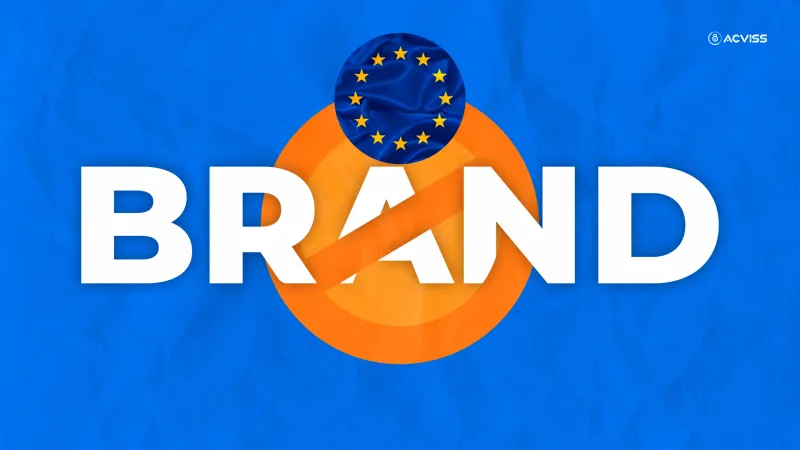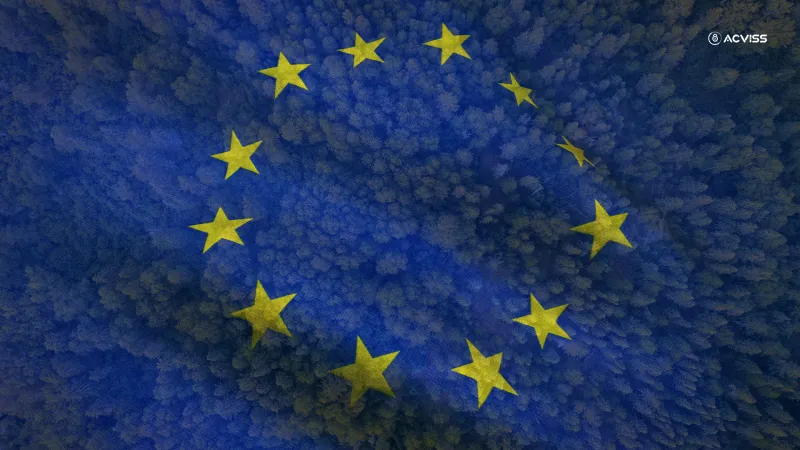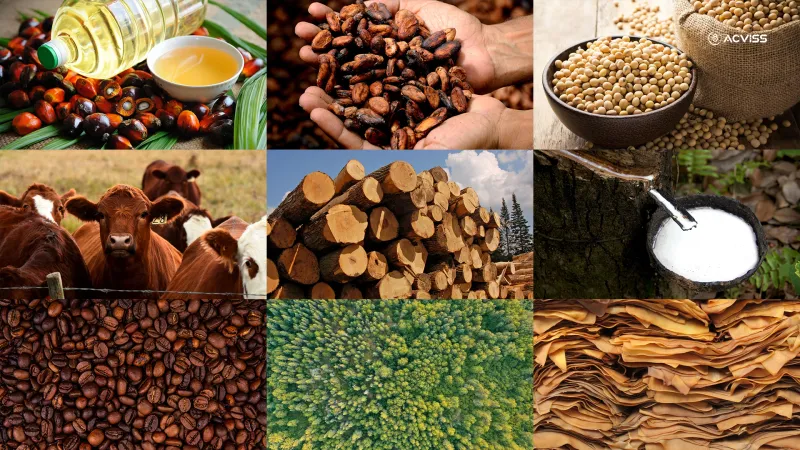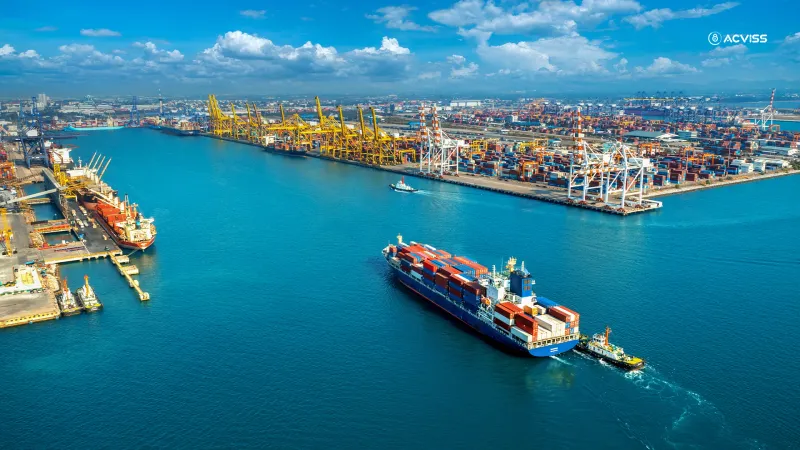Checklist for Avoiding a Brand Ban in Europe: Navigating EU Deforestation Regulation

Are you a brand that sells your products in European markets? Then you must know about EUDR. Failing to know about this new regulation might affect your business dearly.
The European Union’s Deforestation Regulation (EUDR) is an initiative the EU took as part of a larger plan. It is taken to fight against global deforestation. The major reason for deforestation, according to experts, is agricultural land expansion. Commodities like coffee, cocoa, soy, palm oil, cattle, timber and rubber, and derived products like leather, beef, furniture, chocolate, etc., are the commonly produced agricultural goods that affect deforestation. To contribute towards the fight against global deforestation, the EU came up with EUDR.
According to EUDR, any commodity or product derived from the said commodity should not be produced from the land that is deforested after December 31, 2020. Brands operating in the European market should take care of various things to keep their business from getting banned.
Any brand operation in the EU market should strictly adhere to all the EUDR complaints. Failing this, whether you are an exporter, importer, seller, or producer, will have consequences.
Other than getting banned from selling your goods in the EU market, some of the consequences are:
- Financial damages: The authority commission may imply ines up to 4% of companies' turnover in the EU
- Exclusion from market access: Non-compliant businesses will temporarily be banned from public procurement and public funding within the EU.
- Confiscation of goods: The Authority has the power to confiscate non-compliant goods.
- Damage to brand image: The commission will publicly announce the names of the companies selling non-compliant goods in detail on their website.
- Reputational damage: Customers today are more aware and concerned about sustainability. If they know that the brand is unethical, they might lose trust, which can also result in customer backlash.
EUDR came into force on June 29 2023 and will be applicable from December 30 2024 (June 30, 2025, for small businesses)
Now is the right time to start preparing for EUDR. Let's understand the rules in detail so that we can effectively comply with them.
What is the EUDR?

The European Union's Deforestation Regulation is an initiative to support the global fight against deforestation. It will be incorporated on December 30, 2024, and the rules will be applied for small decisions on June 30, 2025.
Guidelines
1. Scope: rules are applied to EU markets or exports from the EU. The main EUDR commodities are:
- Palm oil
- Cattle
- Soy
- Coffee
- Cocoa
- Timber
- Rubber
It also includes derived products such as leather, beef, furniture, chocolate, etc., and it applies to any quantity, large or small.
2. Due diligence: The product or product source should come from land that was not deforested after December 2020 and must comply with the law of the country where it was produced.
3. Traceability: Operators will collect all the information, documents, and data that show the product is deforestation-free and legal. This will include information like geological coordinates, quantity, country of production, etc.
4. Obligations: Operators must assess whether there is a chance that the product doesn't comply with the rules. If such risk exists, risk mitigation procedures should be adopted.
5. Country benchmarking: The commission has a benchmarking system that classifies countries or areas into three parts, giving a clear picture of the risk of commodities produced in that country or region, whether deforestation-free or not.
Getting prepared for the EUDR
Brands must monitor every stage of their business. Below, we have listed the things that should be taken care of at every stage of the supply chain.
1. Growing stage
Commodities should be produced legally and should be deforestation-free. The brand must collect all the necessary information and data to prove the same. Information and documentation like geological data and respective country's legalities.
Commodities produced on land deforested after December 31, 2020, will not be compliant as deforestation-free commodities. Land that is not traceable does not comply with the rules, and such goods cannot be placed in the EU market. The applicable commodities should be stored separately from those that are of unknown origin or are non-compliant.
2. Trading and shipping stage
The storage of complainant goods and goods from unknown sources or non-compliant goods should be separate while traded or shipped. If it fails, the entire shipment will be non-compliant.
3. Importing stage
Before placing a product in the EU market, the importer must perform due diligence. They must submit this report and receive a reference number, which will then be reported in the customs declaration. Only the compliant product will be released by customs authorities, and only those will be allowed to be traded in the EU market.
4. Producing stage
Large manufacturers who use the said commodities to produce final goods, such as chocolate manufacturers, should check the due diligence statement (DDS) of the commodity, done by the upstream in the supply chain (importers) post that they are required to submit their own DDS for their products using the reference number of the upstream. Manufacturers will receive a new DDS reference number and security token once they are approved.
5. Selling or exporting products
Before selling the products in the market or exporting the products, large retailers must check the DDS of upstream supply chain (in our example, it would be checking the DDS statement of importer and manufacturer) post that the retailer has to submit his own DDS with all the reference number of upstream DDS to get their own DDS reference number and security token. Small companies (SMEs) do not need to submit their own DDS statement but must only sell the products that have the DDS security token of the upstream supply chain.
Must read: Your Ultimate Guide to Building an Authentic Brand in 2024
Checklist for brands for EUDR Compliance

Follow this simple checklist to be fully EUDR compliant.
1. Make sure you are legally compliant with all the rules from the regulating country and have all the legal documentation in place
2. Check if your product contains the categories mentioned by EUDR:
If yes, proceed
3. Deforestation-free commodity: Check the source of the commodity. Make sure it is grown on land that was not deforested after December 31, 2020, or from non-traceable land. Take the geographical coordinates of the land.
4. Separate storage:Store finished goods separately from those that are not made from deforestation-free commodities (if any).
5. Implement Due Diligence Processes: Collect, verify, and maintain documentation on deforestation-free status. This includes details about your due diligence efforts, risk assessments, and the traceability system for your products.
(The filing of the Due Diligence Statement will be done electronically on the deforestation registry created by the European Commission. Although this registry isn’t publicly accessible until December 30, 2024)
6. Separate shipping: Make sure you have proper arrangements to ship your products separately to those containing commodities that are not deforestation-free.
This checklist will keep you prepared for upcoming events and enable you to keep your business running smoothly in European countries.

Sure, we get it
The EUDR is a big deal, and it might seem overwhelming, but think of it as an opportunity. By complying with these regulations, you're not just avoiding fines and bans; you're also showing your commitment to sustainability and responsible business practices. This can really boost your brand's image and build trust with your customers. So, start preparing now, get your supply chains in order, and make sure you're ready for the December 2024 deadline. It’s a lot of work, but in the end, it's worth it for the long-term health of your business and the planet.
If you want to know more about EUDR or want to get your product EUDR-compliant, get in touch with us. We, at Acviss have protected over 2 billion products, catering to over 80 brands globally. Our advanced anti-counterfeiting and brand protection solutions are always at your disposal. Reach out to us here to meet our experts and take your first step towards counterfeit-free market growth.
Frequently Asked Questions (FAQs)
1. What is the EU deforestation rule?
The EUDR (European Union Deforestation Regulation), also known as the EU Deforestation Regulation, is a regulation aimed at combating global deforestation. As per the regulation, brands will not be permitted to place their products in European markets that are sourced or derived from deforested land after December 31, 2020.
2. What are the penalties for the EUDR?
Penalties for non-compliance with the EUDR include fines up to 4% of the company's annual EU turnover, exclusion from public procurement and funding, confiscation of non-compliant goods, and public disclosure of violations, which can damage your brand's reputation.
3. What are the main EUDR commodities?
The main EUDR commodities are cattle, cocoa, coffee, palm oil, rubber, soy, and timber. Products derived from these commodities, such as leather, beef, furniture, chocolate, etc., are also regulated under the EUDR to ensure they are deforestation-free.
4. How can I prove my products are deforestation-free?
To prove your products are deforestation-free, you must collect and maintain detailed documentation that verifies the origin and traceability of your commodities. This includes geological coordinates, production dates, and compliance with local laws. Implementing strong due diligence and traceability systems, like blockchain, can support EUDR compliance.
5. How often should I audit my suppliers?
Auditing your suppliers should be a regular practice to ensure continuous EUDR compliance. Conduct initial audits during onboarding and follow up with periodic audits, at least annually or every six months. More frequent audits may be necessary if there are high risks or past compliance issues.
What should I include on my product labels and packaging?
Your product labels and packaging should clearly indicate the commitment to deforestation-free sourcing. Include information on the commodity’s origin, certification marks, and compliance with the EUDR. Anti-counterfeiting measures like unique security codes or holograms can also be added to verify authenticity.